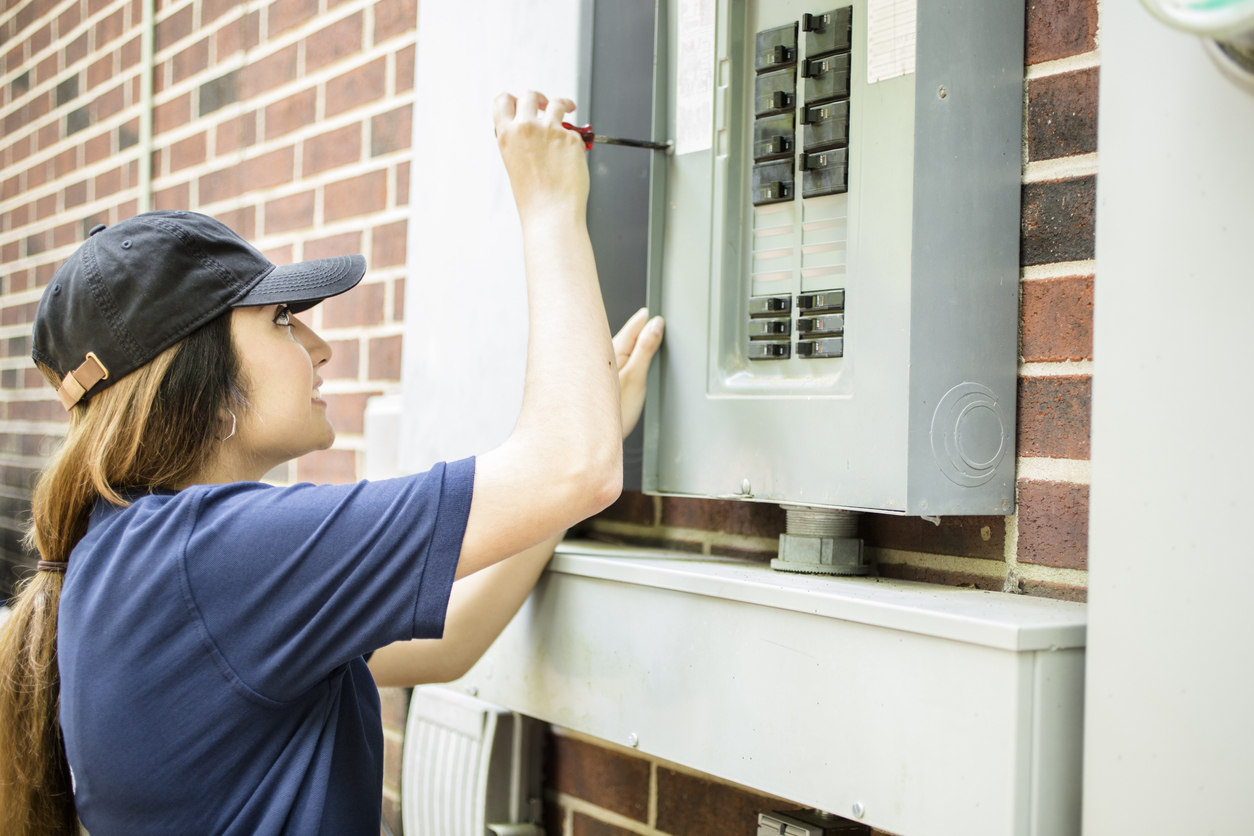While electrical technicians handle engineering systems or maintain existing systems, electricians are responsible for installing electrical systems. Their roles may vary depending on industry, qualifications, interests, and experience.
If you\’d like to pursue a career as an electrician or electrical technician, it’s crucial that you know the differences between them so that you can make an informed decision. This article looks at the differences between two electrical professions in terms of their roles, qualifications, training, salary, education, and licensing.
Let\’s get into it!
What\’s an Electrical Technician?
An electrical technician is a professional who constructs, repairs, and maintains electrical systems in offices, factories, or fields. They follow and use a device\’s schematics to create its electrical systems and inspect, modify, calibrate, or repair it using specialized measuring and diagnostic tools.
Electrical technicians are highly-specialized and work on complex machines and electric systems. They work with electrical engineers who help them develop engineering plans and designs, install, and maintain electrical equipment and systems. As an electrical technician, you might not design an electrical system –it\’s your duty to identify potential problems with the designs, inspect products, and make recommendations for improvements. All this might occur under the electrical engineer\’s supervision, especially when the electrician is making designs and plans.
What\’s an Electrician?
Unlike an electrical technician, an electrician works with electrical systems and equipment exclusively in the field. As an electrician, your work is to install, maintain, and repair those systems and equipment. Other duties include:
- Designing and executing electrical plans for bringing the appropriate power to buildings or other structures.
- Reading and interpreting blueprints, building plans, and specifications for systems\’ installation.
- Ensure adherence to building regulations during installations and repairs of electrical systems.
- Inspecting, maintaining, and repairing existing installations.
- Running wires and connections.
- Direct and train other workers.
An electrician\’s work is almost entirely on the field. Once an electrician completes a project, they leave the site. It\’s the electrical technician\’s work to maintain and repair the systems and equipment once an electrical construction ends.
What\’s the Difference Between an Electrical Technician and an Electrician?
While the two professions have some similarities, below we explore how they differ:
1. Roles and Responsibilities
A qualified and licensed electrical technician can work in the office or in the field to maintain and repair electrical systems under the supervision of electrical engineers. When in the office, they may design electrical systems and inspect, maintain and repair systems while in the field.
On the other hand, electricians often work in the field installing electrical systems and equipment. Anyone, including homeowners (residential and commercial) and business owners, can hire electricians to install or repair systems and equipment, after which they\’ll move to the next client or project.
2. Educational Requirements
Becoming an electrical technician in the U.S. requires a 2-year associate\’s degree in electrical technology or electronic engineering technology from an accredited college, vocational training school, or technical school. You can also attend an accredited career school in Texas and get a certification in place of an associate\’s degree.
Electricians don\’t have many educational requirements to do their work. They require a high school diploma and do an apprenticeship or attend trade school to get a license. The education is more hands-on than with electrical technicians. For instance, to become a licensed Journeyman Electrician in Texas, you must be at least 18 years old and work for at least 8000 hours under a licensed Master Electrician, after which you can apply for a license examination online. You must pass the exam to get a valid license and be able to work as an electrician in Texas.
3. Training
Electrical technician obtains most of their skills at school and work. There are no formal apprenticeship programs for electrical technicians. One learns the project-specific skills they require while they are on the job.
Electricians have the advantage of formal apprenticeship programs under master electricians, which they must complete before they can get their licenses –this makes their training crucial. The hours one has to meet before sitting for the licensing examination form part of the official training during which they acquire skills they can apply to all projects.
4. Licensing
In the U.S. and Texas, a license is not required for electrical technicians. An associate’s degree, in the appropriate field, can qualify you to work as an electrical technician.
Electricians, on the other hand, must have a license to perform their job. In Texas, the Texas Department of Licensing and Regulation (TDLR) requires one to be fully licensed to work in the state legally. Depending on training type and experience level, you can apply for an apprentice electrician license, residential wireman license, journeyman electrician license, or a master electrician license. Each license has specific age, training hours, and application cost requirements.
For instance, a Journeyman Electrician License requires one to complete at least 7,000 hours of on-the-job training under a Master Electrician. 7000 hours allow you to take the examination before completing the 8000 hours required to get your license. You also need to pay a $30 non-refundable fee to the TDLR to get approval to sit for the examinations. All license renewals take place annually. Also, you must do exams to advance your career from one level to the next.
Learn More About the Difference Between an Electrical Technician and an Electrician
There is a huge difference between an electrical technicians and an electrician in terms of their roles, education, training, and licensing requirements. Either career choice is equally rewarding and can be narrowed down to personal priorities and preferences. It\’s important to consider roles, educational requirements, training, and licensing before making a choice.
If you\’re interested in becoming an electrical technician in Texas, Southern Careers Institute (SCI) can help train and equip you with the necessary skills through our electrical technician on-campus programs.
Please don\’t hesitate to reach out to us to learn more about the electrical technician program at our campuses.












